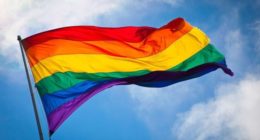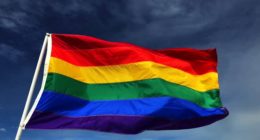By Florence Kyohangirwe

Twasiima is an Afro-feminist lawyer, writer and lover of life. She believes deeply in our collective liberation and has made it her life’s purpose to live and show that another way is truly possible. Twasiima has worked with several local and international organizations, supporting feminist advocacy work on a wide range of issues from decolonization, economic justice and climate action to political rights. She recently started a podcast: Another Way: The Podcast which seeks to explore social, economic and political alternatives through a series of conversations.
She currently works with Segal Family Foundation where she drives SFF’s strategy and oversees grant-making in Uganda. Twasiima also serves as co-board chair of Womankind Worldwide. Until recently, she also served as a global advisor for FRIDA: The Young Feminist Fund focusing on Sub-Saharan Africa. She has an LL.B. from Makerere University and an LL.M. from Georgetown University – Law Centre.
A feminist’s take
On the feminist agenda, how has the movement evolved in Uganda?
Like all movements, the feminist movement in Uganda has grown and continues to do so. To answer this, we have to look at where women and minoritized people were thirty years ago, and where we are too. Of course we have made some progress and we can look at the ability to vote, representation and others as wins. And yet, we must also look at the consistent structural issues that persist as well as regressions in reproductive justice and other areas. The movement has also evolved in how we organise; leveraging on new technologies to mobilise and connect with each other. There are many people today who come to feminism because of the work feminists on twitter, tiktok and other platforms are doing. These build on the works of those who theorised and taught before us such as Sylvia Tamale and Sarah Mukasa.
On the Inter-generational gaps and challenges in the feminism movement. How to bridge the gap.
There is a danger in continuing to perpetuate the idea of an inter-generational gap that is specific to the feminist movement. The old patriarchal falsehood is such that women, particularly younger and older women don’t get along and we must be cautious not to fall into that cognitive bias. My experience has been that older feminists are whom I rely on to learn and that they equally seek me out to teach on that which I know more of. There are disagreements of course, like in all movements, like in all relationships, and that is ok. What bridges any gaps in the core understanding of why we do this work, which is ultimately for all our liberation.
On the role of religion and culture in the fight for gender equality.
Religion and culture are often used as custodians of patriarchy. We see it all the time; the justification of regressive and harmful ideas around bodily autonomy, reproductive justice, inheritance rights, etc. In actuality, these tropes that are used in the mainstream are often an adulteration of our cultures and the core values of the religions we profess. If more of us sat down to understand for example what our cultural beliefs were in reference to sex and sexuality, our bodies, and so on, pre-colonialism, we would be surprised at how much has been distorted. So the first step is to reclaim what we know to be culture and religion. With that, we will appreciate that the same principles that underlie the demands for equity carry across.
On Feminism and trans identity (what’s the role of feminism in advocating for LGBTQI+ especially trans women?)
Feminism, particularly Black feminism has always been held by the core belief that none of us are free, until we are all free. Feminism is a framework that gives us the language and the tools to understand the systemic and interconnected nature of all our oppressions. In a patriarchal world, as women and trans people, we only have a frame of reference based on what cishet men have told us. Trans people and all who reject gender and mainstream binaries of sexuality and etc. are an actual representation of the kind of freedom feminism seeks. It would be impossible to demand freedom for only those with whom you identify and so it is imperative that all those who identify with the label feminist appreciate that the goal is to liberate us all, from all the oppressions that limit our ability to fully navigate the world.
On challenges and the feminism movement and how they could be countered.
We must always hold onto the hope that we can build a more abundant, judicious, and safe world. It is that hope for what we are fighting for that sustains us, even in the midst of challenges of any kind. I don’t think of challenges within the movement as avoidable or bad, I think what matters is how we react to them. We have to do better and manage conflict with each other, to begin to model alternative ways of being that are not replicative of the same systems of oppression we fight against. We must begin to invest in abolitionist and transformative justice methods that mirror back to us the kind of world we want to see.











